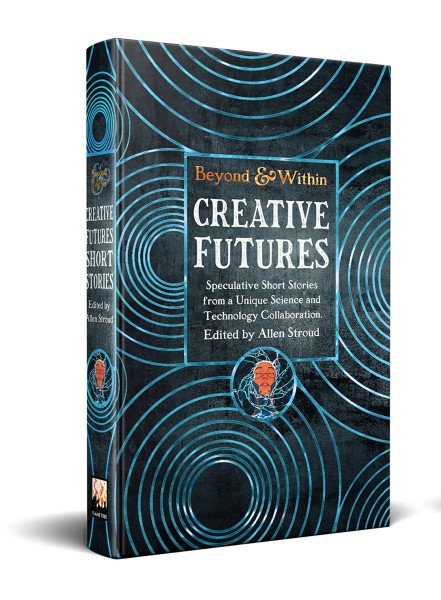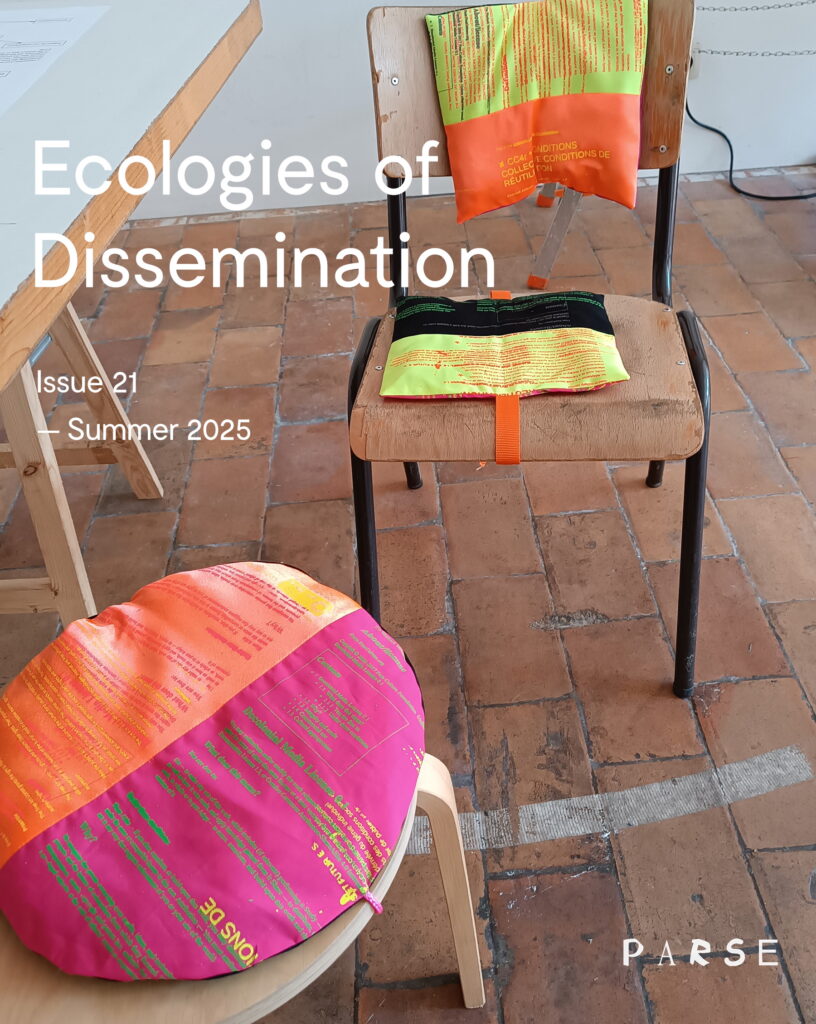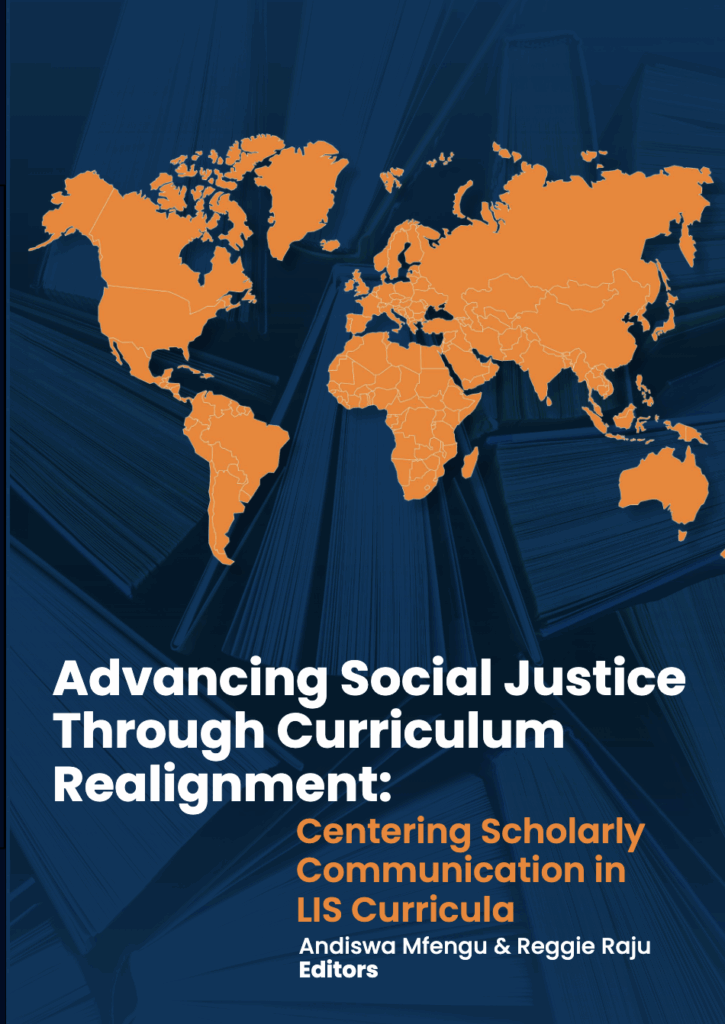Welcome to our Post-Publishing autumn 2025 Newsletter! Please find underneath a selection of recent updates from Post-Publishing researchers. You can sign up to receive our newsletter here (scroll to the bottom).
Simon Bowie presented at Sheffield OpenFest on 3 September 2025 with a paper called ‘Opening the Unexpected: enabling experimentation through open access and open source’. The paper, co-authored with Open Book Collective colleague Kevin Sanders, discusses how approaching openness as a social process of knowledge production can revitalise open research’s sense of experimentation and how our work with the Radical Librarians Collective, Copim’s Experimental Publishing Group, and the Open Book Collective point to ways of being experimental within open research. You can watch the recording at https://shu.cloud.panopto.eu/Panopto/Pages/Viewer.aspx?id=d999777f-b54f-41d8-b293-b3520090cdb4

Alexandros Plasatis took part in a conversation on ‘Libraries as Spaces of Welcome and Inclusion for Asylum Seekers and Refugees’ alongside Glasgow Women’s Library and Refugee Festival Scotland. The online event took place on 22/8/2025 and was organised by CILIPS. Alex will also be speaking at The University of Aberdeen at their OA week event ‘Opening knowledge: Beyond the University community,’ which will take place on the 22 October 1-3pm.
Judith Fathallah convened and hosted the final Decision Making Panel for the Open Book Collective Development Fund 2025. Liaison and reporting for the 2024 recipients is ongoing: for updates on these projects, see here. Meanwhile, the Open Book Collective has just released its major new report, ‘Collective funding models for open access books: Librarians’ experiences and barriers to participation across six European contexts’, on which Judith is lead author. This report seeks to understand librarians’ experiences of collective funding models for open access books, especially barriers to joining organisations like the OBC. Judith has also been developing the network Making Meaning of True Crime, which assembles scholars in fan studies, media and cultural studies, journalism and related fields. Her latest article, ‘I guess the moral of the story is if you’re going to kill someone do it in Texas? Murder, Mystery and Makeup as post-true crime’ has just been published in Popular Communication.

Adeola Eze’s short story, ‘Down the Lonely Road’, has been published in the anthology Beyond & Within: Creative Futures – Speculative Short Stories from a Unique Science & Technology Collaboration (edited by Dr Allen Stroud). The volume brings together some of the UK’s most acclaimed and emerging voices in speculative science fiction. Eze’s contribution is a poignant narrative that explores themes of neurodivergence, loneliness, and emotional intelligence through the story of a young boy who struggles to connect with others. His parents introduce him to Jada, a humanoid robot designed to be his companion, raising profound questions about friendship, empathy, and the capacity for machines to experience or replicate human emotions.The anthology forms part of the Creative Futures Research Project, a collaboration between Coventry University and the Defence Science and Technology Laboratory (DSTL), the UK Ministry of Defence’s science and technology organisation.
Simon Bowie and Rebekka Kiesewetter hosted the Collective Infrastructures for Publishing hybrid symposium, organised together with the ‘ServPub – A Collective Infrastructure to Serve and Publish’ experimental book pilot project team. The event took place on Saturday 4 October 2025, 12:30–18:00 BST, both online and at Borough Road Gallery, London South Bank University. During the symposium, members of CC (creative crowds), Constant, Hackers & Designers, In-grid, OBF Experimental Publishing Group, Minor Compositions, noNames, SHAPE, Systerserver,TITiPI, and Varia explored the ongoing ‘ServPub’ pilot and discussed themes from self-hosted infrastructures, feminist servers, and tools such as wiki2print and VPN, tto the fricions and affordances of collaborative, interventionist publishing across academic, para-academic, and hybrid spaces.
From 21 to 22 October, Rebekka Kiesewetter will share her work on experimental reading groups at the workshop ‘Lesekreise. Praktiken kollektiver Lektüre’ in Berlin. The event is organised by EXC 2020 Temporal Communities at Freie Universität Berlin, the Leibniz Centre for Literary and Cultural Research (ZfL), the Literaturforum im Brecht-Haus, and diffrakt. centre for theoretical periphery. During the workshop, academics, librarians, booksellers, publishers, and facilitators and participants of reading groups will explore the aesthetic, community-building, and political dimensions of collective . reading. Drawing on historical and contemporary practices from academic, political, artistic, and trade union contexts, the workshop aims to reflect on the potential of reading circles and to experiment with shared reading modes through talks, discussions, and exploratory on-site formats.

Eva Weinmayr co-edited, together with Femke Snelting, a special issue of PARSE Journal (Issue #21: Ecologies of Dissemination). This issue of PARSE Journal starts from the tangled and mesmerising fabric of collective artistic practice, particularly from the frictions that keep coming up when sharing work that was collectively produced or while reusing works made by others. You may have felt too shy to reuse existing work out of caution not to overstep cultural boundaries. You may have engaged in cultural appropriation without noticing, or maybe regretted including a fragment, image or reference but did not know how to apologise. Maybe, you have experienced a situation in which collaborators expressed anxiety about not being credited adequately, or you struggled with who or what to include or exclude from a colophon. You may at times also have felt wrongly acknowledged or not acknowledged at all. This issue is for anyone who engages in cultural production: it is for those who practise through citations, appropriations, referencing, fan-fiction, piracy and other forms of reuse; for those who recognise the tensions that emerge when the conviction that cultural work is collectively produced and owned is brought in conversation with power asymmetries, inequities and appropriative moves grounded in intersecting forms of oppression, such as racism, sexism, classism, among others. With contributions by Erri Ammonita, Constant, Gabriela Méndez Cota, Séverine Dusollier, Andrea Francke, Gary Hall, Jennifer Hayashida, Cathryn Klasto, Nkule Mabaso, Nicolas Malevé, C. Thi Nguyen, Peggy Pierrot, Ram Krishna Ranjan, Dubravka Sekulić, Femke Snelting, Winnie Soon, Marloes de Valk, Eva Weinmayr, Stephen Wright.
On Wednesday 10 September 2025, we organised together with the Experimental Publishing Group, the HD LAB at IIBICRIT-CONICET, Paideia Editorial, and Thoth Open Metadata, the third online seminar in the Experimental Book Publishing in Practice seminar series: ‘Publicación Experimental en Práctica: Herramientas Colaborativas y Digitales (Experimental Publishing in Practice: Collaborative and Digital Tools). The seminar featured talks by Gimena del Rio Riande (CONICET-USAL), Simon Bowie and Whitney Trettien, Patricio Pantaleo and Amanda Ramalho and was moderated by Janneke Adema. You can view the recording on the Internet Archive here: https://archive.org/details/Experimental_Publishing_Seminar_01
Gary Hall will be giving a talk for the The Computer Arts Society on ‘Liquidate AI Art’ on Wednesday, 15 October 2025 at 6pm BST. The talk will be online (via Zoom) and you can register here. The talk argues for liquidating AI art, not out of a dismissal of artificial intelligence as techno-fascist, nihilist or parrot-like, but an insistence that art has always been created by assemblages of humans and nonhumans. There is no pure, authentic human creativity to distinguish from works generated with technologies like Stable Diffusion. The talk references the International Coalition for the Liquidation of Art – whose members included Gustav Metzger, first editor of the CAS bulletin PAGE – and especially Frieder Nake’s assertion in PAGE 18 that ‘there should be no computer art’. For Nake, art should not be divided into commodifiable styles based on the tools used, but should instead function as a radical force capable of disrupting the hierarchies of the bourgeois art world. Picking up on this challenge, ‘Liquidate AI Art’ shows how UK arts funding today overwhelmingly benefits upper- and middle-class, privately educated Oxbridge graduates. Efforts to promote inclusion through social mobility risk reinforcing this unjust system. What’s needed is a redistribution of resources – e.g. through the liquidation of the UK’s copyright regime – to support radically different artistic practices beyond the white, male, middle-class, liberal humanist norm. Gary’s new book Masked Media: What It Means to be Human in the Age of Artificial Creative Intelligence, was also discussed during an online symposium on 12 September. The event was co-organised by the electronic journal Culture Machine and 17, Instituto de Estudios Críticos in Mexico City, and was hosted by the Laboratory of Contemporary Writings / Laboratorio de Escrituras Contemporáneas, which was launched with this event. The event included talks by Peter Baker (University of Stirling), Alexandra Anikina (University of Southampton), Benjamín Mayer-Foulkes (17, Instituto de Estudios Críticos), and Gabriela Méndez-Cota (Culture Machine/Universidad Iberoamericana).

Janneke Adema edited a special issue of the Journal of Electronic Publishing on Publishing and Climate Justice, which also includes an article she wrote: ‘Strategies for Climate Justice in the Academic Publishing Industry: From Pledges to Direct Action’. This important collection captures urgent and critical research that starts to outline the challenges the climate emergency poses to the publishing sector. The issue asks: What is the role and responsibility of the publishing industry in tackling climate change?The contributions to this issue all share a desire to further the dialogue about climate (in)justice in scholarly publishing, highlighting the paucity of research on this topic. But they also offer real examples of ways in which scholars, publishers, libraries, universities, and infrastructure providers can start to make meaningful change in this context. Janneke also had a chapter published on ‘Promoting Interactions and Engagement with Scholarly Research: Speculations on the Role of the Librarian in Advancing Experimental Publishing’, in the collection Advancing Social Justice Through Curriculum Realignment: Centering Scholarly Communication in LIS Curricula, edited by Andiswa Mfengu and Reggie Raju and published by University of Capetown Press.